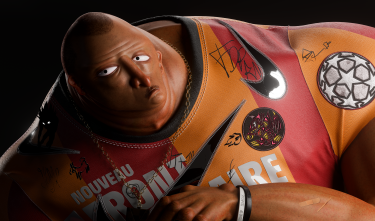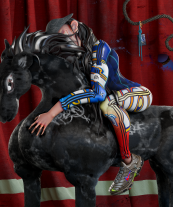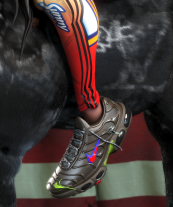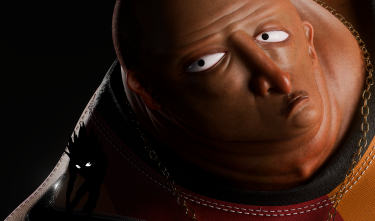Diego Grandry
Spotlighted by Marius Jopen
 1
1
— "I tend to engage with emotionally loaded topics, where a nuanced position is needed, providing the audience with room for them to engage with and relate to the subject." - Diego Grandry
Diego Grandry embraces the expanding possibilities of the digital to share narratives that stress how relative concepts like normality and normativity are. Blending the digitally hand-made, his work is sculptural and painterly, best described as visual poetry that re-imagines the body through technology. He explores this recurrent theme by embodying a certain ‘otherness’ across different media: drawings morphing into 3D software, virtual reality, and hacking and repurposing video games, all of which results in illustration, film and sculpture. By transporting and manipulating physical objects from popular culture into virtual realities, he re-appropriates their meaning and creates a unique set of visual languages and symbols.

— “I like how Diego Grandry—much like other surreal archaeologists—presents us with horrifying, twisted, and absurd artefacts from the underworld." - Marius Jopen
Diego is a graduate of The Royal Academy of Art The Hague, where he now teaches in the Interactive Media Design department. He shares socio-political stories that ignite a common consciousness of belonging and actualises them for a society-in-the-making. To do so, he navigates the friction between hegemonic ideals of ugliness and beauty to explore discourses on exclusion, difference, identity, and body politics. In Man on a Horse, Diego represents the contemporary French story of the cavalier du 93—a myth referencing the vibrant Parisian suburb of Seine-Saint-Denis (93) often associated with immigration and marginalisation, that evokes the image of a modern-day hero emerging from this context. Man on a Horse provides a positive and sensitive portrayal of a community often stigmatised, magnifying the grandeur and timelessness of its imagery. Coupling techniques from classical painting portraiture with modern technological means achieves a level of detail that reinforces a sense of tradition and cultural significance. Frères et Sœurs crystallises a pivotal moment in the political climate in France—the uniting of the left as Front Populaire to combat the rise of the far right. In light of the recent elections, Diego emphasises a painstaking attention to skin in mobilising politics, as a reminder of the complex role that this organ plays in divisive propaganda.


